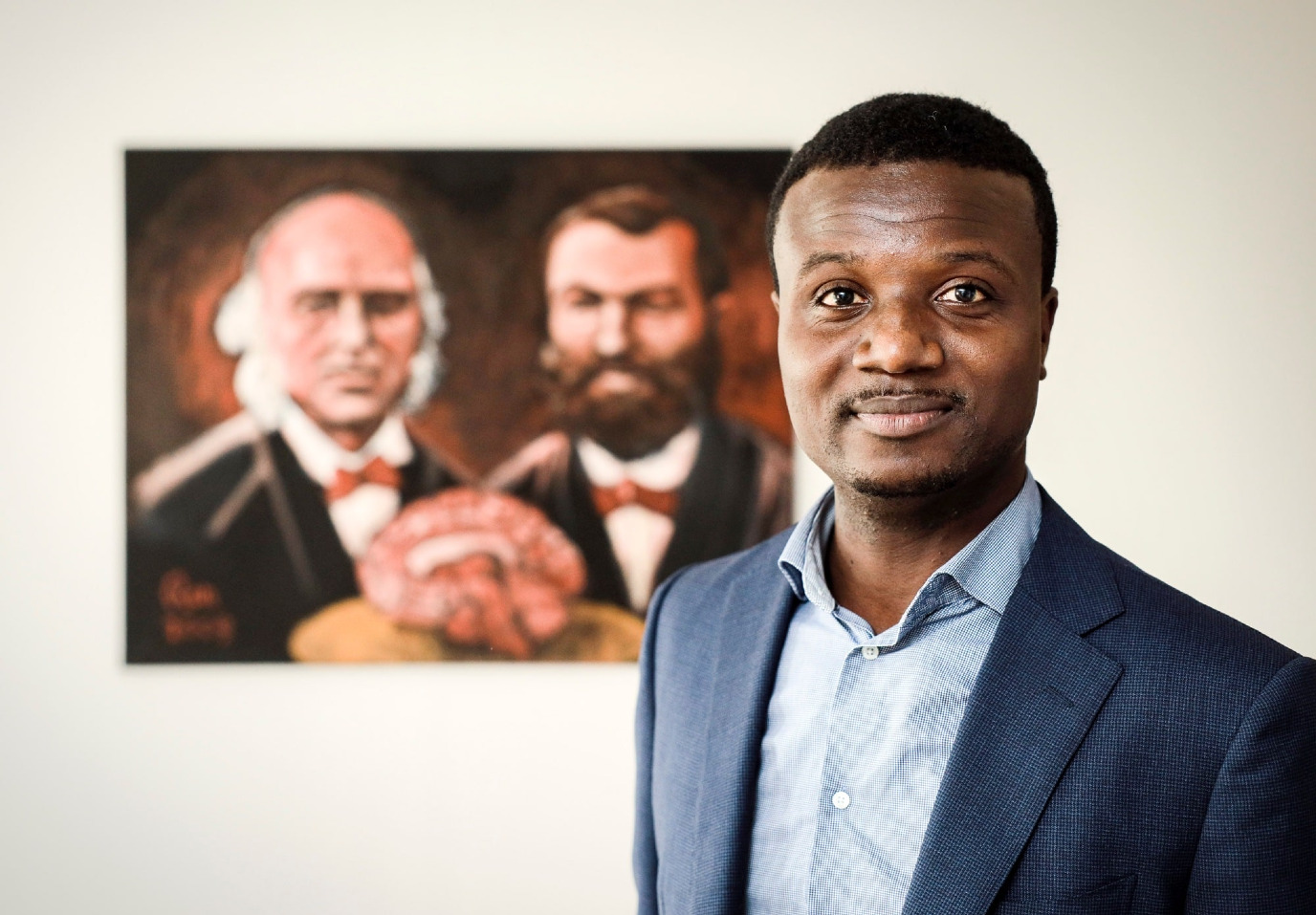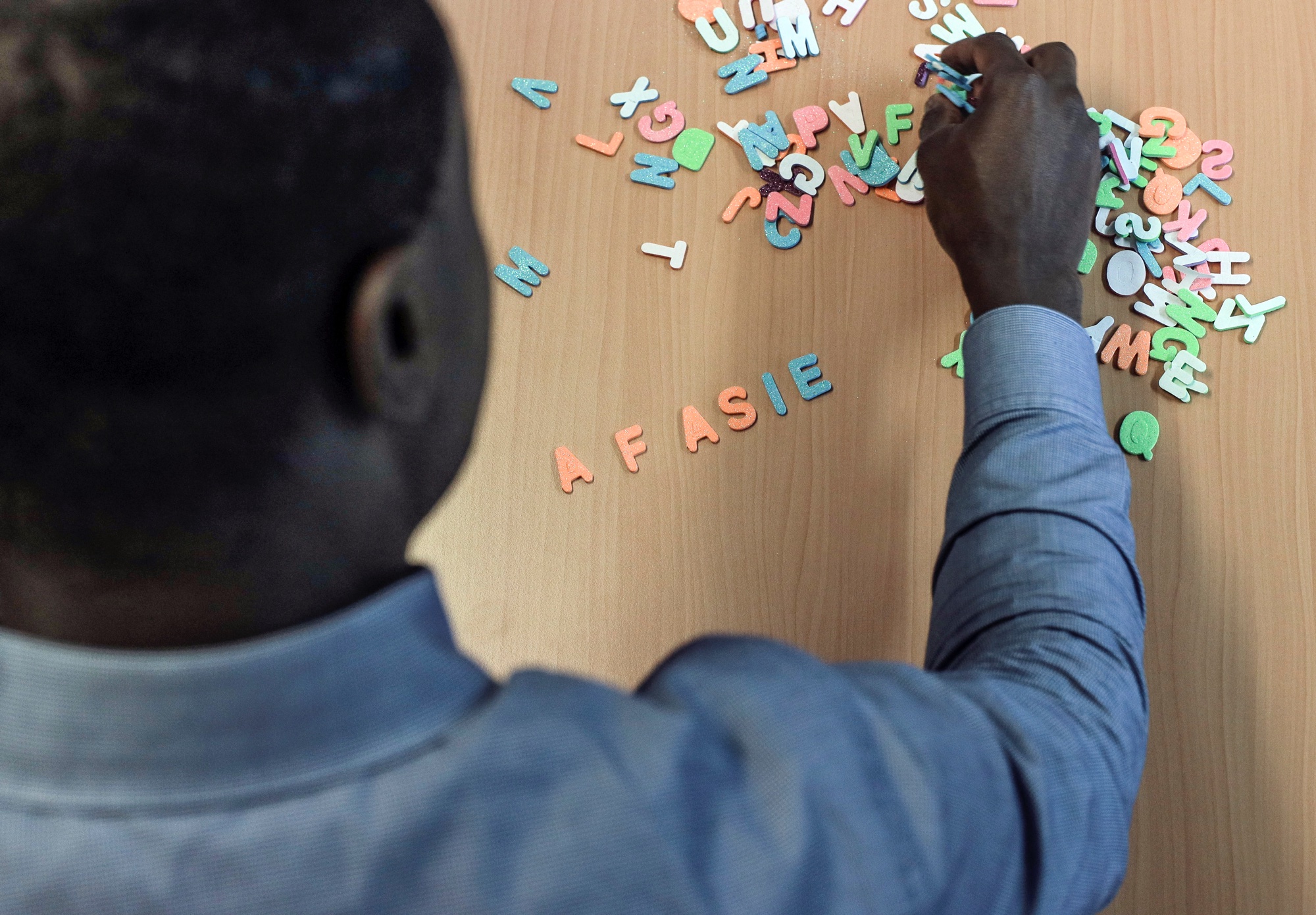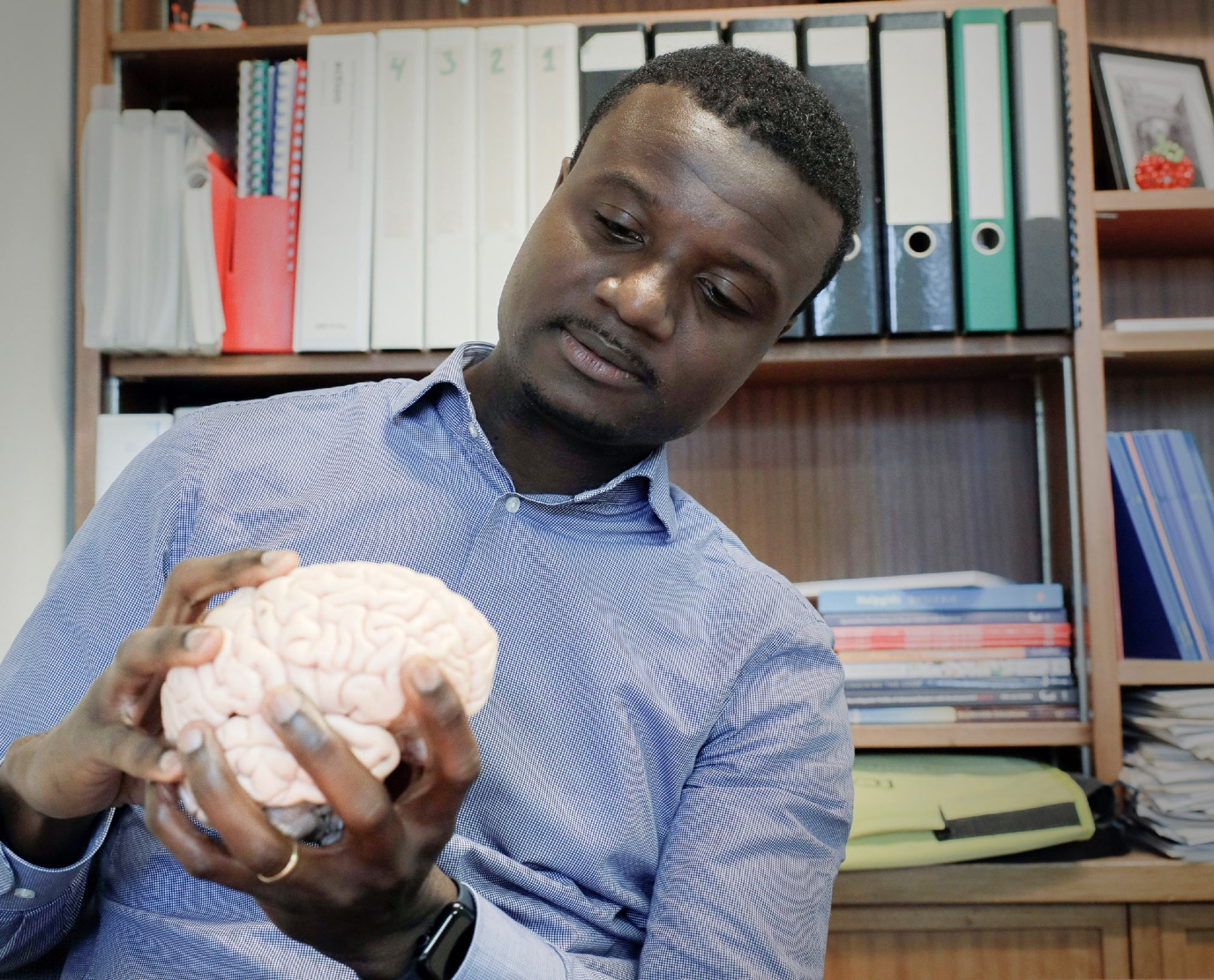When you’re constantly looking for words
Sometimes a word is on the tip of your tongue, but you just can’t reach it. This is a well-known phenomenon all of us struggle with sometimes. But imagine that you’re struggling to find words all the time. For many people with aphasia – a language disorder caused by brain damage – this is a daily, frustrating reality. Dr Frank Tsiwah , assistant professor of Computational Linguistics at the Faculty of Arts, is researching whether he could build a computer model that can help people find the words they want to say.
Text: Theone Joostens | Photos: Henk Veenstra
While doing his Master’s and PhD research, Frank Tsiwah came into contact with people who have aphasia as a result of a stroke. This confrontation made a great impact on him: ‘I interviewed people of all ages; older patients but also a young woman who was only nineteen years old. To see them struggle with language really got to me. They often knew what they wanted to say, but they couldn’t find the words.’

Word-finding difficulties
Aphasia is usually caused by damage to the left side of the brain, where our language centre is located, as a result of a stroke (a cerebral haemorrhage or infarction), an accident, an infection, or a brain tumour. There are many types of aphasia; Wernicke’s aphasia and Broca’s aphasia are the two most well-known ones. People with Wernicke’s aphasia have little to no understanding of language anymore. They talk a lot, but what they’re saying cannot or can barely be understood. These people also often don’t understand what’s being said to them.
People with Broca’s aphasia, on the other hand, do understand language, but they have a hard time finding the right words and forming sentences. For the latter group with so-called word-finding difficulties, Tsiwah hopes to find a solution to help them find the right words so they can communicate better. He wants to use an existing large language model for this and fine-tune it for this specific task. ‘A large language model is a form of artificial intelligence that has been trained to understand and create human-like language,’ says Tsiwah. ‘Think of ChatGPT or Google Translate, for example. I’m currently researching whether it’s possible to build a model that can predict the word someone wants to say based on the context of the conversation. For instance, someone is trying to say “I’m drinking a cup of tea”, but they can’t find the word for “cup”. How great would it be if there was a tool, for example an app on your phone, that could infer from the context that you want to say “cup”?’

Small steps
A computer language model like that has to be further trained, which requires a lot of input from people with aphasia. Tsiwah explains: ‘Models like this are often trained by using perfect sentences, but that’s not the case here. The model will have to get used to fragmented speech, many pauses, and incomplete sentences.’ Tsiwah feeds the model with written data: transcribed texts of spoken language by people with aphasia. The model is then fine-tuned to understand which words are missing based on the context. ‘The first phase of my research is to answer the research question: is it possible to finetune a language model that can predict missing words,’ says Tsiwah. ‘If the answer is “yes”, the next step will follow: can this model also do this in real time? We will have to build other models for that and take a lot of small steps in order to ultimately arrive at the final product: an app or other device that can help people in real time.’
The question of privacy
There is still a long way to go, however. Nevertheless, Tsiwah is already thinking about aspects such as privacy. ‘The app – if it will become an app – will listen to people’s conversations and collect data so that we can keep improving the app. This data won’t be misused for commercial purposes, of course. I understand that privacy is a big issue, which is why it’s possible to save data locally on the user’s device. This will prevent the data from being shared with anyone. You can also choose to turn the app on or off as a user, so you have control over your own privacy.’

A lot of loneliness
‘To be honest, I think it’s much more important to focus on solving the huge problem,’ says Tsiwah, ‘which is the daily struggle with language that people with aphasia have and which leads to so much frustration and social isolation. Did you know that a stroke is the second most common cause of death worldwide? Everyone, whether young or old, can suffer a stroke. Thirty percent of the patients who survive a stroke are left with a language disorder as a result. Although the symptoms vary greatly, most people with aphasia have difficulty finding their words. I’m passionate about using my knowledge to contribute to finding a solution and improving the quality of life for these people.’
| Last modified: | 13 June 2024 12.24 p.m. |
More news
-
12 March 2025
Breaking news: local journalism is alive
Local journalism is alive, still plays an important role in our lives and definitely has a future. In fact, local journalism can play a more crucial role than ever in creating our sense of community. But for that to happen, journalists will have to...
-
11 March 2025
Student challenge: Starting Stories
The Challenge Starting Stories dares you to think about the beginning of recent novels for ten days.
-
11 March 2025
New: Sketch Engine, tool for language research
Sketch Engine is a tool for language research, which can also be used for text analysis or text mining.
